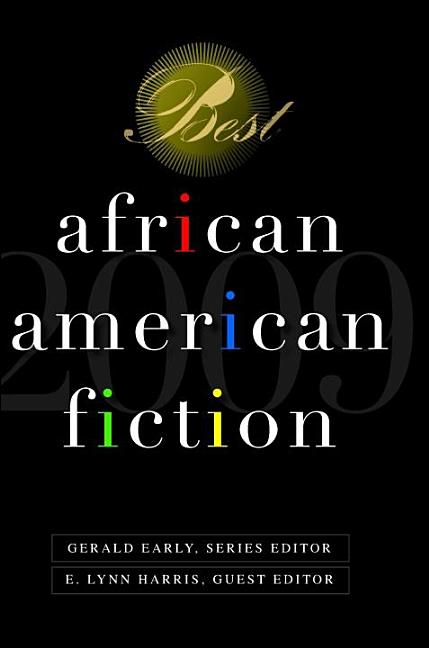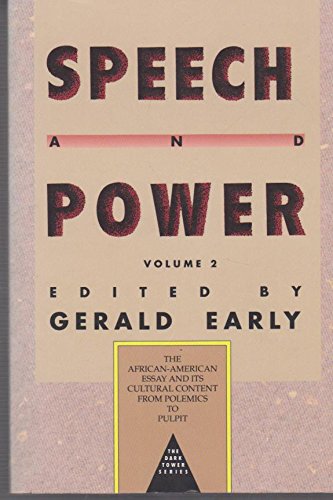
Gerald Early Selected Works


Muhammad Ali—arguably the finest athlete of the twentieth century and incontestably one of the most famous Americans of his time—is known the world over, not only for his boxing prowess, but for his rebellious courage and resilience against controversy. He has been both underdog and champion, villain and prince, playboy and staunch Muslim, exalted American and punished conscientious objector. He was the ultimate athlete—Heavyweight Champion of the World—and today confronts the physical debilitations of Parkinson's disease.
A one-of-a-kind volume, The Muhammad Ali Reader collects more than thirty of the best writings about this boxing legend in an incredible anthology by the greatest about The Greatest. This is the amazing story of Muhammad Ali—and the world's reaction to him—told by a stellar array of authors, athletes, and social commentators. Floyd Patterson defends Ali's right to criticize America's participation in the Vietnam War; Malcolm X explains how Ali went from "entertainer" to "threat" with his declaration as "a man of race"; Ali himself shares some intimate and definitive thoughts in a Playboy magazine interview; and Gay Talese gives us a front seat on a ride to Cuba, where Ali meets up with Fidel Castro.
Organized by decade, chapters begin with a few opening remarks by Ali himself, and a spectacular sixteen-page photo insert captures The Champ in all his guises. With an introduction by Gerald Early, one of the finest contemporary writers on boxing, The Muhammad Ali Reader confirms Ali's standing as one of the most controversial and charismatic Americans of our time.
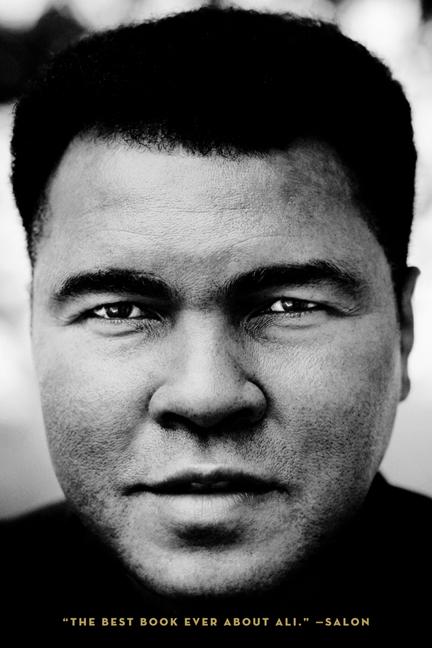
Sammy Davis, Jr. (1925-90) rose from childhood stardom on the vaudeville stage to become one of the most famous African American entertainers of the 1950s and '60s (and the only black member of Frank Sinatra's Rat Pack). At the same time, he spent most of his career surrounded by controversy and ridicule--over his affairs with white film stars like Kim Novak and Jean Seberg; his 1960 marriage to Swedish actress May Britt; his conversion to Judaism; his closeness to the Kennedys and, later, Richard Nixon; and his problems with alcohol and drugs.
Davis comes alive in this collection of writings about him, including a 1966 Playboy interview by Alex Haley; an excerpt from the 1983 autobiography of porn star Linda Lovelace; profiles from The New Yorker, The New York Times Magazine, and The Saturday Evening Post; and articles from many prominent African American periodicals. The Sammy Davis, Jr. Reader is a composite portrait of a complex, self-conscious man and the society that treated him, for more than forty years, with passionate ambivalence.
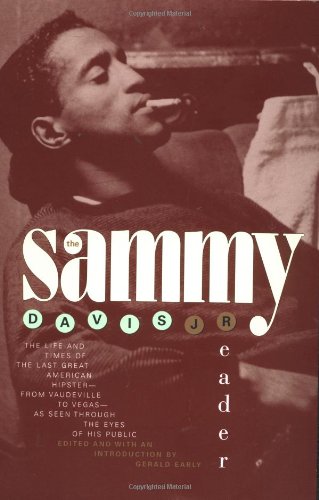
This anthology captures voices which comprise the African American experience in St Louis over 200 years. It spans a variety of genres and includes words from such people as William Wells Brown, Bob Gibson, Miles Davis, Tina Turner, Eddy Harris, Quincy Troupe and Eugene Redmond.
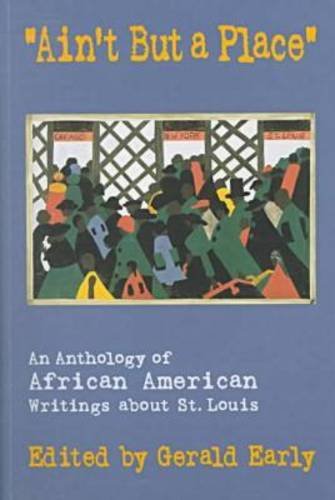
The fascinating and turbulent black America of the 1960s emerges in these essays, through the lenses of dissent and its contradictions. Gerald L. Early revisits this volatile time in American history, when class, culture, and race ignited conflagrations of bitterness and hatred across the nation. The lives of three active and influential people are given special attention: Cecil B. Moore, advocate and agitator in the “racial tinderbox” of black Philadelphia; Muhammad Ali, promoter of a “colored” consciousness; and Sammy Davis Jr., survivor of black vaudeville and liberator of black performers. The fiercely independent Moore, who rebuffed the black political establishment because it failed to address the concerns and needs of the majority of the black populace, used the authority of the NAACP to forge a militant, populist organization at the local level. Ali, one of the most widely recognized athletes of all time, combined protest and action to become a hero for black and “colored” people throughout the world, and became a type of ambassador to the Third World. Davis mirrored America’s emancipation, confusion, and self-destructiveness, and, most important, its self-consciousness, which transcended even his remarkable accomplishments as an entertainer. As Early demonstrates, the careers and lives of Moore, Ali, and Davis illustrate and embody the ambiguity and struggle of American identity in the 1960s.
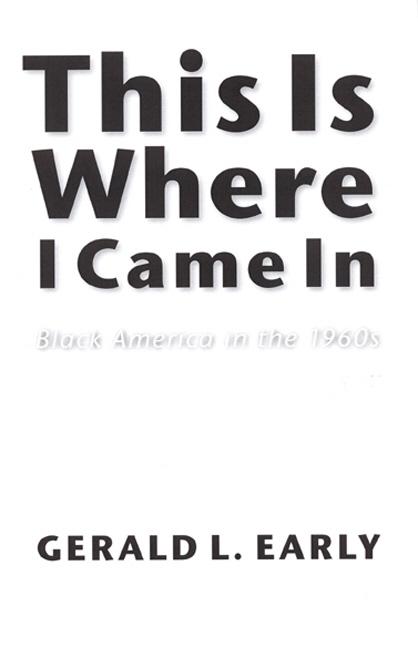
This exciting collection introduces the first-ever annual anthology of writing by African Americans. Here are remarkable essays on a variety of subjects informed by—but not necessarily about—the experience of blackness, as seen through the eyes of some of our finest writers.
From art, entertainment, and science to technology, sexuality, and current events—including the battle for the Democratic nomination for the presidency—the essays in this inaugural anthology offer the compelling perspectives of a number of well-known, distinguished writers, among them Malcolm Gladwell, Jamaica Kincaid, James McBride, and Walter Mosley, and a number of other writers who are just beginning to be heard.
Selected from a diverse array of respected publications such as the New Yorker, the Virginia Quarterly Review, Slate, and National Geographic, the essays gathered here are about making history, living everyday life—and everything in between. In “Fired,” author and professor Emily Bernard wrestles with the pain of a friendship inexplicably ended. Kenneth McClane writes hauntingly of the last days of his parents’ lives in “Driving.” Journalist Brian Palmer shares “The Last Thoughts of an Iraq War Embed.” Jamaica Kincaid describes her oddly charged relationship with that quintessentially British, Wordsworthian flower in “Dances with Daffodils,” and writer Hawa Allan depicts the forces of race and rivalry as two catwalk icons face off in “When Tyra Met Naomi.” A venue in which African American writers can branch out from traditionally “black” subjects, Best African American Essays features a range of gifted voices exploring the many issues and experiences, joys and trials, that, as human beings, we all share.
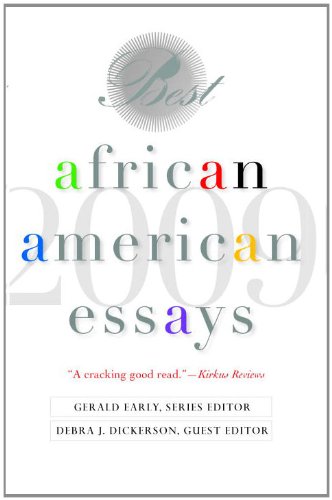
Here is the superb second edition of the annual anthology devoted to the best nonfiction writing by African American authors—provocative works from an unprecedented and unforgettable year when truth was stranger (and more inspiring) than fiction.
The galvanizing election of Barack Obama was on the minds—and the pages—of authors everywhere. Best African American Essays 2010 features the insights of writers from Juan Williams to Kelefa Sanneh and even Obama himself (his seminal speech on race is included here in its entirety). Ta-Nehisi Coates, in The Nation, proclaims that the president has "redefined blackness for white America," while Adolph Reed, Jr., in The Progressive, calls him a "vacuous opportunist" and Colson Whitehead, in The New York Times, lightheartedly revels in the election of "someone who looked like me . . . slim." The First Lady is considered, too, as Lauren Collins, in The New Yorker, assesses the radical quality of Michelle Obama's very normalcy.
But Best African American Essays 2010 goes beyond the Obamas with brilliant pieces from such writers as Hua Hsu, who declares the end of white America in "a new cultural mainstream which prizes diversity above all else"; Henry Louis Gates, who researches his family tree, adding to the "young discipline" that is African American history; and Jelani Cobb, who dares to defend George W. Bush. There are thoughtful and heartfelt tributes to living legends, including Bill Cosby (and an analysis of his famous "pound cake" speech, which promoted black responsibility, empowerment, and self-esteem), and remembrances of those who have passed, including Miriam Makeba, Isaac Hayes, Eartha Kitt, and Michael Jackson.
Selected by guest editor Randall Kennedy, a leading intellectual and legal scholar, the wide-ranging pieces in Best African American Essays 2010 comprise a thrilling collection that anyone who wishes to understand the meaning of the new America must own.
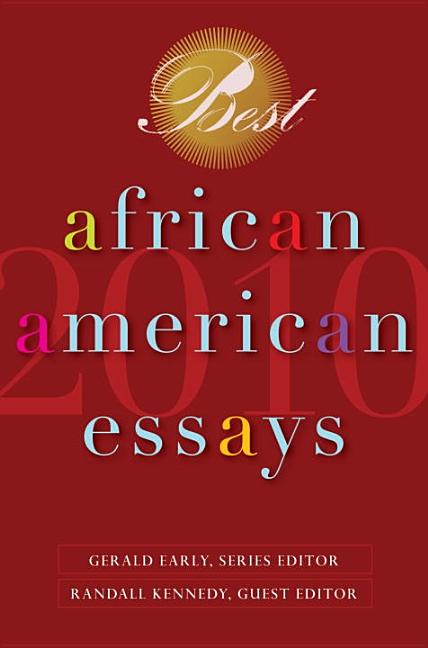
A debut collection of essays that address the intersection where black and white cultures and societies meet, ranging from presidential politics, literature, and cinema to sports, jazz, and the Miss America contest.
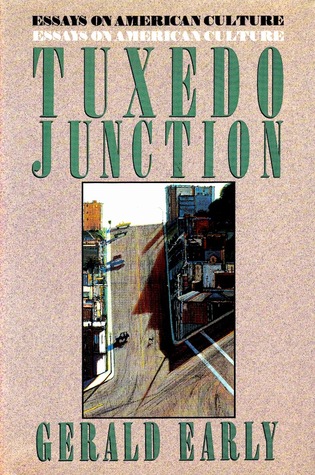
Introducing the first volume in an exciting new annual anthology featuring the year’s most outstanding fiction by some of today’s finest African American writers.
From stories that depict black life in times gone by to those that address contemporary issues, this inaugural volume gathers the very best recent African American fiction. Created during a period of electrifying political dialogue and cultural, social, and economic change that is sure to captivate the imaginations of writers and readers for years to come, these short stories and novel excerpts explore a rich variety of subjects. But most of all, they represent exceptional artistry.
Here you’ll find work by both established names and up-and-comers, ranging from Walter Dean Myers to Chimamanda Ngozi Adichie, Mat Johnson, and Junot Díaz. They write about subjects as diverse as the complexities of black middle-class life and the challenges of interracial relationships, a modern-day lynching in the South and a young musician’s coming-of-age during the Harlem Renaissance. What unites these stories, whether set in suburbia, in eighteenth-century New York City, or on a Caribbean island that is supposed to be “brown skin paradise,” is their creators’ passionate engagement with matters of the human heart.
Masterful and engaging, this first volume of Best African American Fiction features stories you’ll want to savor, share, and return to again and again.
